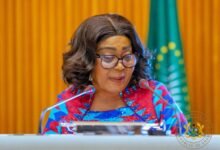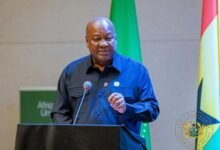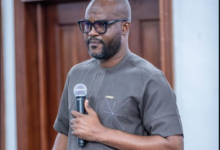
The United Nations Development Programme (UNDP) has raised alarm about the possibility of violent extremism if government fails in delivering its responsibilities towards the citizenry.
Project Coordinator of UNDP, Melody Azinim, dispelling the notion that violent extremism was only an external phenomenon, said, it could also be home-grown if government does not honour the social contract with the people.
Ms Azinim was speaking at the opening of a two-day training programme held in Tumu in the Sissala East Municipality of the Upper West Region.
The two-day programme is under the auspices of the Atlantic Corridor Project themed: “Promoting civilian-security engagement for collaboration for early warning to prevent conflicts and violent extremism in the Upper West Region”.
It is being sponsored by the United Nations Development Programme (UNDP) and the Norwegian Ministry of Foreign Affairs, with implementation by the National Peace Council.
Other vulnerabilities likely to trigger extremism, according to Ms Azinim, included tribal discrimination, political divisions, religious intolerance, non-availability of economic opportunities among others.
She stressed on the need to empower women through the creation of economic opportunities, noting that “If you leave out women in the development agenda, somebody will take advantage and recruit them for the wrong purposes”.
“Let’s be more involved in the peace and security of our communities and nation at large; peace and security are all of us our responsibility and no one should sit and say it is the responsibility of one person,” Madam Melody said.
She said a collaboration between civilians and security would ensure immediate reporting of early warning signals, hence the essence of the training.
She stressed on the need to build trust among the two because civilians often thought that security personnel would not protect them when they provided early warning information to them, whilst there were other concerns from the security side that community members sometimes provided false information.
Professor Samuel Marfo, a Professor of Peace and Conflict Resolution at the Simon Diedong Dombo University of Business and Integrated Development Studies (SDD-UBIDS), noted that security was a critical component of any democratic governance, adding that community security worked well in an environment of shared responsibility.
Mr Emmanuel Danyomah, the Executive Secretary of the Upper West Regional Peace Council, thanked UNDP and the Norwegian Ministry of Foreign Affairs for funding the project.
Mr Limann Alhassan, the Sissala East Municipal Coordinating Director, in a speech read on his behalf, noted that the Assembly had collaborated with various organisations to ensure peace in the district.
He said, despite the effectiveness of the security personnel in the district, they needed the support of community members and appealed to them to always endeavour to report early warning signs to the security people for urgent actions.
Pio Kwabalugu Badiyiga Ali IV, the Chief of Kapun, described the civilian-security relations training as timely as he recently observed an increase in the influx of people from Burkina Faso into their community, saying this called for increased vigilance on their part.
The chief reiterated the need to economically empower women to reduce their risk of vulnerability.
FROM RAFIA ABDUL RAZAK WA







